MCQ ON MALARIA class 12 for NEET | GASTRULATION class 12 | MCQ MALARIA with Answer | Check the below NCERT MCQ question for class 12 Biology based on the with Answers.
MCQ on MALARIA class 12 Biology with answers were prepared based on the latest pattern.We have provided class 12 Biology MCQs question with Answers to help students understand the concept very well.
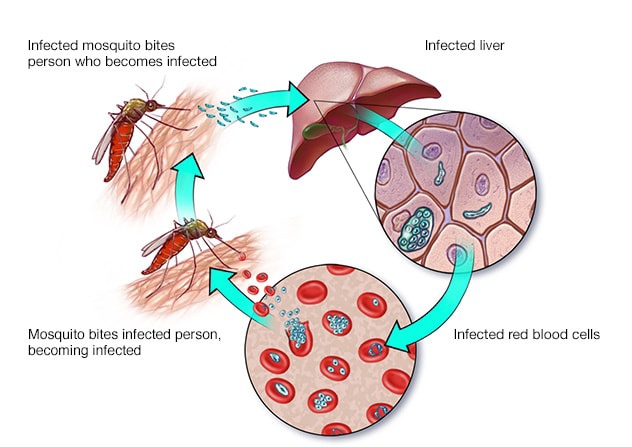
MCQ ON MALARIA class 12 for NEET
MCQ ON MALARIA is useful for NEET / CSIR / UGC / CBSE / ICSE / AIIMS / EXAM / AFMC EXAM / STATE LEVEL MEDICAL EXAM/ KVS PGT BIOLOGY / NVS PGT BIOLOGY EXAM 2022-23 , 2023-24
INTRODUCTION:-
Malaria is a communicable protozoan disease of tropics and mild temperate areas which is spread by mosquitoes and is characterized by recurring rigors sudden chills , shivering and rapid rise of body temperature followed by perspiration and gradual fall of temperature , anaemia , toxaemia and splenomegaly.
Malaria is caused by a digenetic and triphasic protozoan parasite known as Plasmodium .Four species of Plasmodium cause malaria in human beings.
They are Plasmodium vivax, plasmodium malariae , plasmodium falciparum and plasmodium ovale .
The infective stage of parasite in human beings is Sporozoite .
The vector is female mosquito of genus Anopheles which introduces the parasite in human beings during blood sucking incubation period is 10 – 15 days for plasmodium ovale and plasmodium vivax 6-12 days for plasmodium falciparum and 28 – 30 days for plasmodium malariae.
Life cycle of plasmodium has three phases : schizogony, gamogony and sporogony.
MCQ ON MALARIA class 12 for NEET/KVS PGT BIOLOGY / NVS PGT BIOLOGY
1. Malaria is caused by
(a) plasmodium
(b) diplococcus
(c) tetani
(d) Neisseria
Ans (a) plasmodium
2. How many species of plasmodium cause malaria in human beings ?
(a) four
(b) three
(c) two
(d) five
Ans. (a) four
3. The infective stage of parasite in human beings is
(a) sprozoite
(b) trophozoit
(c) gamogony
(d) sporogony
Ans. (a) sporozoite
4. Life cycle of plasmodium has three phases-
(a) schizogony
(b) gamogony
(c) sporogony
(d) all the above
Ans.(d) all the above
5.The incubation period of plasmodium ovale is
(a) 10 – 15 days
(b) 6 – 12 days
(c) 28 – 30 days
(d) all the above
Ans.(a) 10 – 15 days
6. The incubation period of plasmodium falciparum is
(a) 10 – 15 days
(b) 6 – 12 days
(c) 28 – 30 days
(d) all the above
Ans.(b) 6 – 12 days
7. Shuffner’s dots are related to
(a) Entamoeba histolytica
(b) Leucocytes
(c) Mosquito
(d) RBCc of humans
Ans.(d) RBCs of humans
8.Which of the following is quartan in periodicity ?
(a) P. malariae
(b) P. vivax
(c) P.ovale
(d) P. falciparum
Ans.(a) P.malariae
9. Motile zygote of plasmodium occurs in
(a) Human RBCs
(b) Human liver
(c) Gut of female Anopheles
(d) Salivary glands of Anopheles
Ans. (c) Gut of female Anopheles
10. Which stage of malaria parasite causes recurrence of malaria?
(a) Merozoite
(b) Sporozoite
(c) Gametocyte
(d)Hypnozoite
Ans. (a) Merozoite
11. Plasmodium vivax causes
(a) Benign tertian malaria
(b) Malignant tertian malaria
(c) Quartan malaria
(d) Mild malaria
Ans.(a) Benign tertain malaria
12. Sexual stage of plasmodium occurs in
(a) Salivary glands of mosquito
(b) Human RBC
(c) Intestine of mosquito
(d) Human liver
Ans . (c) Intestine of mosquito
13. Intermediate host of malaria parasite is
(a) Pig
(b) Man
(c) Mosquito
(d) Larva of mosquito
Ans.(c) Mosquito
14.Disease like malaria and filariasis are transmitted through insect vectors . Vectors can be controlled by introducing fish.
(a) Labeo
(b) Gambusia
(c) Hilsa
(d) Catla
Ans. (b) Gambusia
15. Plasmodium initially multiplies within the liver cells and then attacks red blood cells , resulting in their rupture.Rupture of RBCs in associated with release of a toxic substances
(a) Hirudin
(b) Heparin
(c) Heptoin
(d) Haemozoin
Ans.(d) Haemozoin
ALSO READ:-
● YOU CAN WATCH BIOLOGY SIR Youtube channel
16. Which gland gets enlarged in malaria?
(a) Liver
(b) Spleen
(c) Pancreas
(d) Adrenal
Ans.(b) Spleen

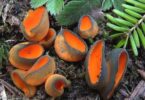
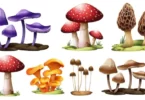
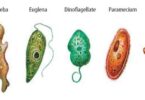
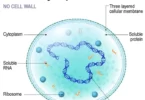
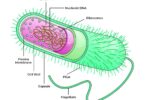
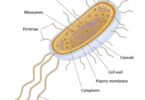
Leave a Comment